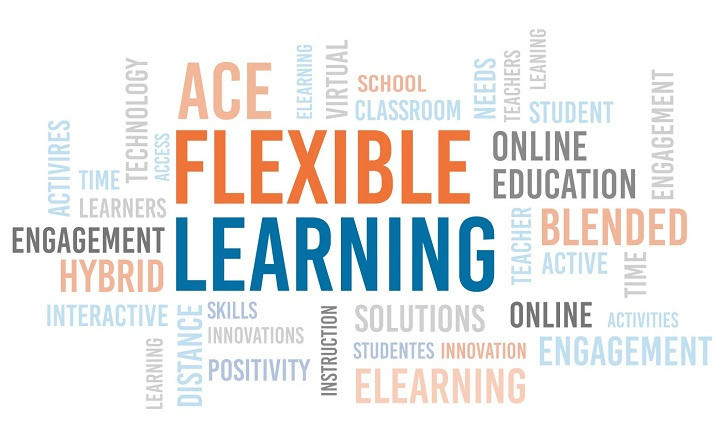Online Bootcamps Offer Fast Track Career Change Options
In today's fast-moving job market, Americans are turning to online bootcamps as a rapid, focused way to shift careers or gain new, high-demand skills. Unlike traditional degree programs that can take years, online bootcamps are designed to deliver job-ready knowledge in a matter of weeks or months—making them especially attractive to career changers, busy parents, and working adults.
Let's explore how bootcamps work, what they offer, and why they've become a key part of the American online education landscape.
What Are Online Bootcamps?
Online bootcamps are intensive, short-term training programs designed to teach specific skills, often in fields where workers are in high demand. They focus on practical, hands-on learning and often include capstone projects, peer collaboration, and real-world scenarios.
The most popular bootcamp subjects in the U.S. include:
- Software development and web design
- Data science and analytics
- Cybersecurity
- Digital marketing
- UX/UI design
- Project management
- IT support and cloud computing

Bootcamps are often run by independent providers like General Assembly, Springboard, or CareerFoundry, but many U.S. universities—including UC Berkeley, Columbia, and Northwestern—now offer online bootcamps as well.
Why Are Americans Choosing Bootcamps?
There are several reasons why online bootcamps are growing in popularity:
- Speed: Most bootcamps last 8 to 24 weeks, compared to two or four years for a traditional degree.
- Affordability: Bootcamps often cost between $5,000–$15,000, significantly less than a university degree.
- Job relevance: Bootcamps are designed with employer input and focus on real-world skills that match current job openings.
- Flexibility: Many programs are self-paced or part-time, ideal for people juggling work or family responsibilities.
- Career support: Some bootcamps offer mentorship, résumé reviews, mock interviews, and job placement services.
A 2023 study by the Council on Integrity in Results Reporting (CIRR) showed that 71% of bootcamp graduates in the U.S. found a relevant job within six months of completing their program.
Who Can Benefit from Online Bootcamps?
Online bootcamps are especially beneficial for:
- Career changers: People moving from retail, hospitality, or administrative roles into tech or digital careers.
- Recent graduates: Those who want to specialize further or build practical experience after earning a degree.
- Underemployed professionals: Workers who want to move into higher-paying or more stable roles.
- Stay-at-home parents: Individuals returning to the workforce after raising children.
For example, a former restaurant server in Texas completed a 16-week coding bootcamp in 2024 and now works as a junior software engineer earning over $70,000 annually.

Flexible Learning Options
Most bootcamps offer multiple learning modes to suit different schedules:
- Live online classes: Real-time instruction via Zoom or proprietary platforms.
- Self-paced courses: Access lessons anytime, with deadlines for projects and assessments.
- Hybrid formats: Combine live mentoring with asynchronous learning and peer projects.
Some providers also offer night and weekend cohorts, which are ideal for full-time workers.
What Do Employers Think?
The stigma around non-degree education is fading. More U.S. employers are recognizing the value of bootcamp graduates, especially in tech and digital industries. Companies like Google, IBM, Amazon, and Microsoft regularly hire bootcamp alumni and even partner with bootcamps to develop custom talent pipelines.
Hiring managers say bootcamp grads often stand out for their problem-solving ability, real-world project portfolios, and motivation to learn.
Financial Support and Scholarships
While not eligible for traditional federal student aid, many bootcamps offer:
- Income Share Agreements (ISAs): Pay after you land a job.
- Deferred tuition: No upfront cost, payment begins post-employment.
- Scholarships for women, veterans, and underrepresented groups.
- Employer reimbursement: Some U.S. companies cover all or part of the cost for employees to upskill.
For instance, Flatiron School and Thinkful offer full-tuition scholarships to selected students based on need, background, and merit.

Risks and Considerations
Bootcamps are not for everyone. They require self-discipline, time commitment, and a willingness to learn under pressure. Before enrolling, ask:
- Is the bootcamp transparent about outcomes and graduation rates?
- Do they offer job placement or mentorship?
- Are the instructors industry professionals?
- Is the content regularly updated to reflect market demand?
Resources like SwitchUp and Course Report offer verified reviews and rankings of bootcamps in the U.S.
Real Results: A Look at Graduate Success
- Melissa, 29, from Ohio, switched from retail to cybersecurity after a 20-week bootcamp. She now works remotely for a health-tech firm earning $85,000/year.
- Javier, 35, from California, completed a digital marketing bootcamp while working full-time. Within three months, he landed a freelance contract with a tech startup and eventually became their marketing manager.
These stories are increasingly common as bootcamps become a respected path into competitive industries.
Final Thoughts
Online bootcamps are helping Americans rewrite their career paths without the time and cost of traditional education. Whether you want to break into tech, boost your digital skills, or explore a new industry, a well-chosen bootcamp can offer the tools, network, and confidence to take the next step.
If you're ready for a challenge and eager to invest in yourself, the right bootcamp could be the shortest path to your next career.
